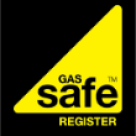Powerflush
Photos from our Magnacleanse Machine, Seeing is believing...
What is meant by the term Powerflush and do you need one on your heating system? Let’s address this question and deliver clear concise information for you to make a decision as to whether this would be money well spent. To best describe this process, we need to split it into four sections:
- System flush/chemical flush
- Powerflush of heating system/Magnacleanse
- Cleaner, Inhibitor and Biocide
- Which products do we use and why?
By splitting this subject into three, this will allow us to break this subject down so you can differentiate between different terminology and understand what is meant by these terms.
System flush/Chemical Flush
This type of flush should be carried out during a new boiler installation where a water sample should be taken from radiator circuit to allow the engineer to know if there is magnetite present in the circuit (small fragments of rust from inside the radiator circuit) and the ph. of the water. The further the ph. is away from neutral the more likely it is that there will be a greater rate of corrosion inside the radiator circuit and the water quality will start to take its toll on the boiler, the more magnetite will be present in the system. For example, if the water within the heating circuit is acidic your boiler would be more susceptable to breaking down washers and o rings within the boiler, the likely outcomes would be leaks, burst expansion vessel and eventually flow restrictions from the heat exchanger which can result in the boiler overheating and not functioning properly.
Now from experience the system flush isn’t happening during installation as it should, many of our competitors will supply and fit new a boiler and don’t test the water. This is a major issue within the industry, we’ve witnessed many good boilers fitted that should be lasting 15 years plus and they need replaced after 8 years due to blocked heat exchangers as the magnetite get stuck on the narrow waterways within the heat exchanger. As a result of this our prices are more expensive for a new boiler installation which means we can miss out on jobs as we take longer to do the job correctly. It is also worth mentioning that there are companies out there who do this properly, when you are deciding on a company to carry out a new boiler installation you should question them over the water treatment of your system. A couple of hundred pounds saved now could cost you a lot more in the future.
The correct process for a system/chemical flush is, they should dose the system with cleaner and leave that to run in the system for at least a couple of hours (for a day or two for best results) the cleaner breaks the magnetite down into smaller fragments which will then make their way back to the new system filter, then drain the system to remove the cleaner. The system should then be flushed with clean cold water, like a rinse cycle and then drained out again this will remove any remnants of cleaner from the system and allow the engineer to clean the filter. The last stage is to take another water sample from the heating circuit this will allow the engineer to know if the cleaner and flush process has been successful, and lastly the engineer would add inhibitor to the system which protects the metallic sections of the heating circuit and will slow the corrosion process significantly.
To stop corrosion in a heating circuit is impossible it will happen naturally which you can’t stop, however you can significantly reduce the rate at which corrosion takes place by controlling both the magnetite in the system and ph. of the water. Note at installation many engineers use flux to solder pipes which is acidic and if the system isn’t flushed the flux will cause a higher rate of corrosion causing damage in the long run which cannot be reversed.
Powerflush of heating system/Magnacleanse
A Powerflush of a heating system or a Magnacleanse is when we follow the process above, but we join a separate Powerflush machine to the circuit normally with larger magnets than the standard system filter, which will allow the Powerflush/Magnacleanse machine to remove more magnetite from the system over the same time period as the system flush and standard filter would. At The Boiler Repair Man our engineers then use agitators on the radiators where they give the radiators a shake and use the vibrations to remove loose or sleeping magnetite and the magnets then pull this out of the system. The combination of the agitator and the cleaner breaks up the magnetite and magnet remove this from the system. So, we go around the full system radiator by radiator (shutting the rest off) and focussing on agitating one at a time, the agitation process does also send vibration via the radiator to the pipework and each time this is happening this is cleaning the main pipework in and out of the boiler also.
Cleaner, Inhibitor and Biocide
There are numerous chemicals available on the market and each should be used under the correct circumstances. The cleaner will breakdown magnetite and allow the magnets to do their job and the magnetite will be removed when the filter is cleaned at a service. The inhibitor will keep the ph. At neutral as much as possible and also protect the internals of the heating circuit. The Biocide is used mainly on plastic pipework and is a relatively new introduction to the market. We are currently buying biocide directly from the manufacturer as the stock availability of this product in the merchants is poor, this means that there isn’t a demand for it which beggars’ belief to be honest with you. Biocide is used in systems where there is plastic pipework fitted on the heating circuit, the reason we dose the systems with this is due to biofilm growing within the plastic pipework, the biocide stops the biofilm growing is a proactive measure to stop it growing, once it is in the system it makes the water black and slimy which can blockages over time to radiators so its best to remove this from the system as soon as you can before it causes a drop in performance of the heating system. We do have videos from new build properties where we’ve carried out a flush of the system within 3 – 4 years of the property being built and quality of the water is poor. This is going to be an issue moving forward with many heating systems over the next 5 – 10 years as new installations with plastic pipework engineers are not dosing the system with biocide as it isn’t being stocked in the majority of merchants at the minute.
Which Products do we use and Why?
At The Boiler Repair Man, we use the Adey range of products from chemicals to filters. We also have 3x Magnacleanse machines as we have 5 engineers and it is common to be using all three on the same day. So, we use Adey MC1 inhibitor, MC3 cleaner and MC biocide. The magnacleanse machine can be easily fitted to the filter valves and can be done with minimal fuss and disruption, we have attached photos of some recent powerflush that we’ve carried out so you can see the magnetite we are removing from heating systems everyday. Should you have any questions or if you’d like to discuss this in more detail please feel free to contact The Boiler Repair Man on 0141 239 1195 or theboilerrepairman@outlook.com
ADEY Products
At The Boiler Repair Man, as stated above we use Adey Chemicals, Adey Filters and also the Magnacleanse machine is used for our powerflushing process. The reason we use them is that the seals on them last a long time and don't need replaced every year and also they don't leak if fitted correctly whereas other filters on the market do leak and cause damage to properties. Please see below a youtube link to Adey Magnacleanse where the powerflush process is described and is easier to understand with the visuals they provide.
Should you have any questions regarding any aspect of powerflushing or the magnacleanse process please feel free to get in touch with us on 0141 239 1195 or theboilerrepairman@outlook.com
..
The Boiler Repair Man Glasgow
Unit 26 Dalsetter Business Centre
42 Dalsetter Avenue
Glasgow G15 8TE
Office Hours
Mon 08:00 – 20:00
Tue 08:00 – 20:00
Wed 08:00 – 20:00
Thur 08:00 – 20:00
Fri 08:00 – 20:00
Sat 08:00 – 12:00
Available for Emergency callouts outwith office hours for an increased rate





























